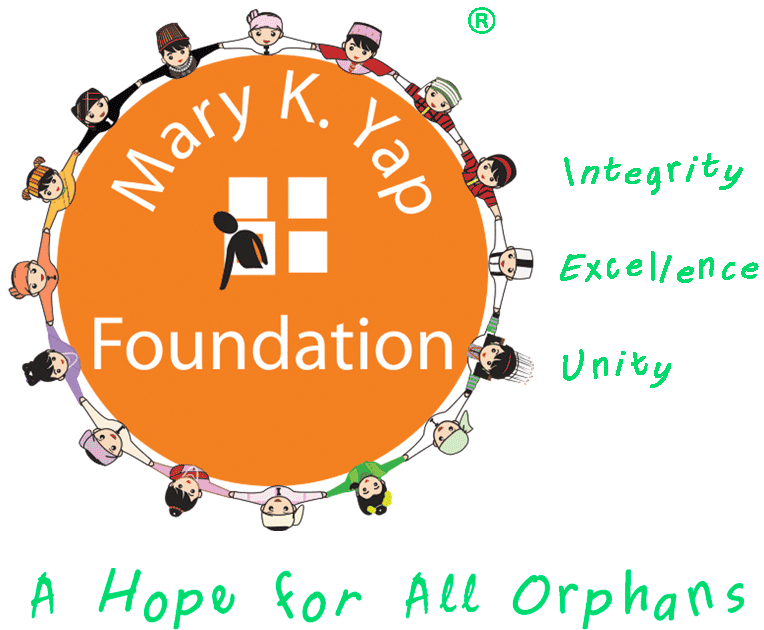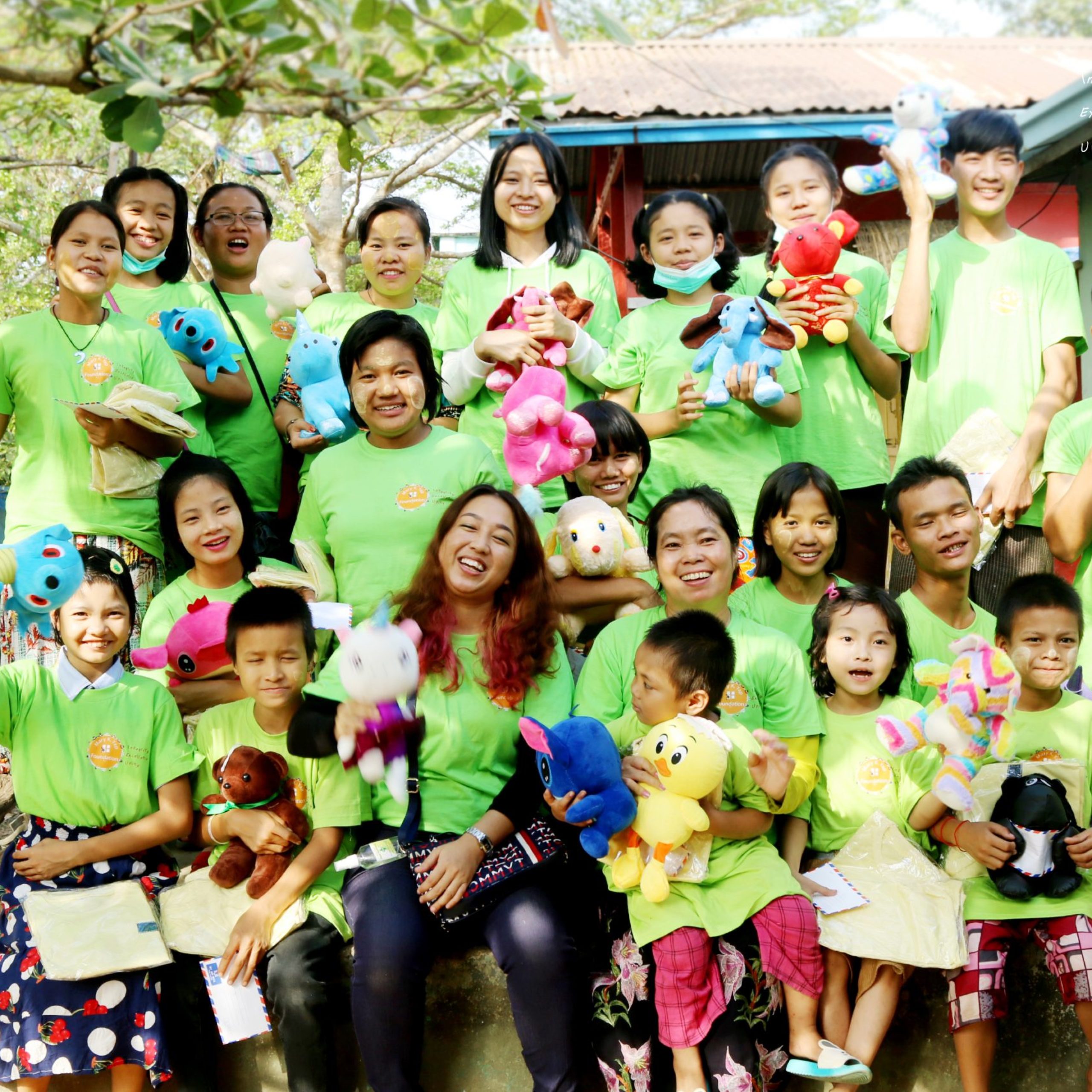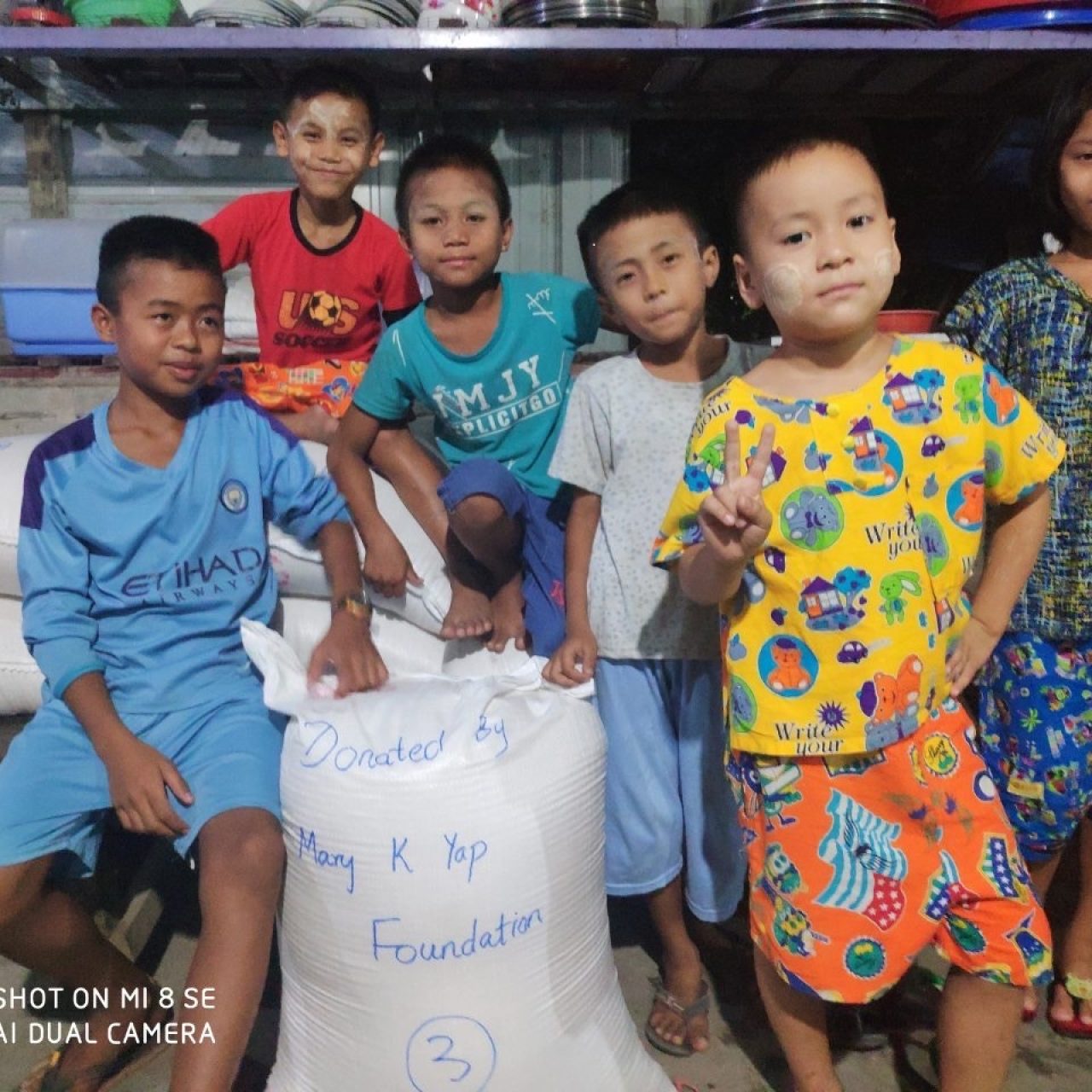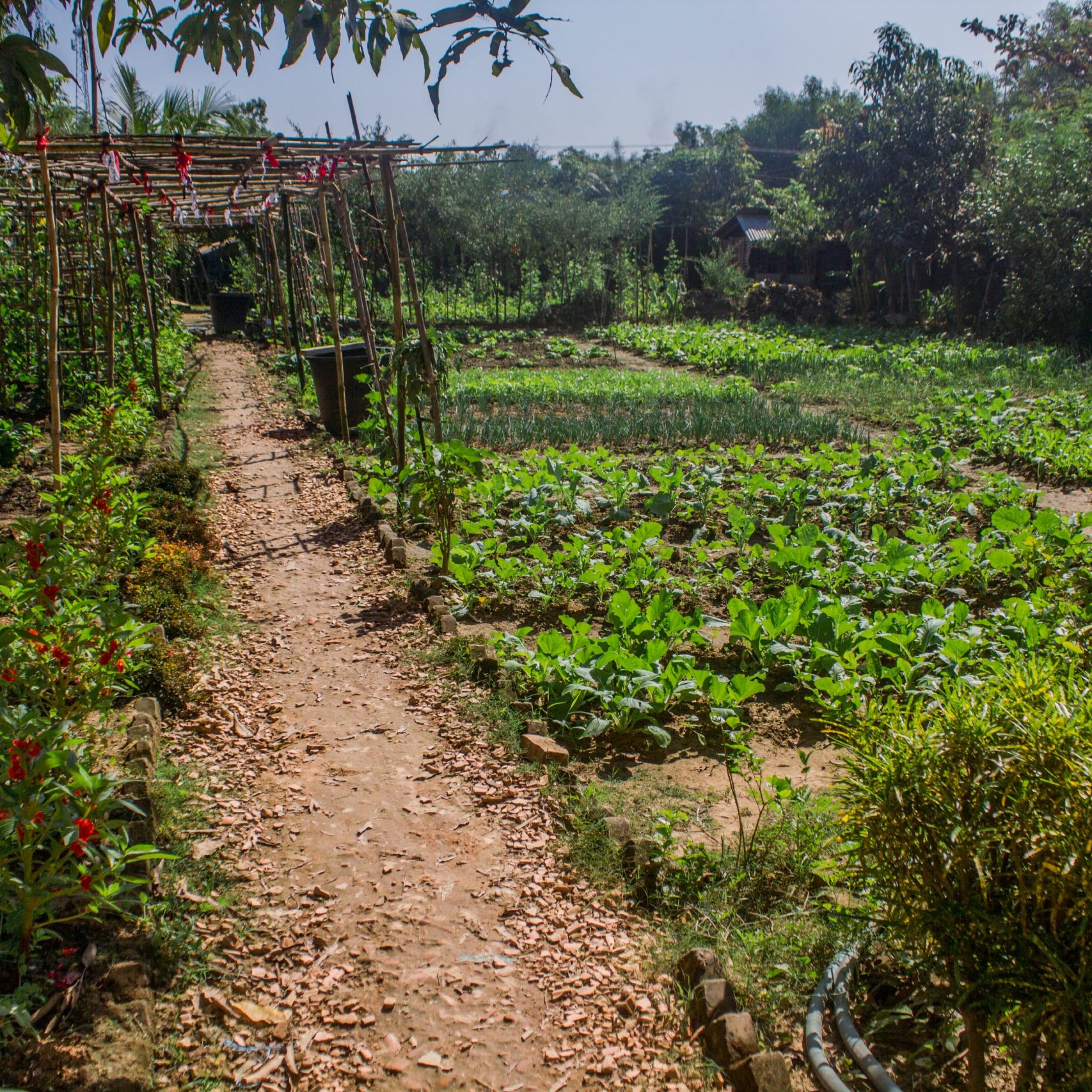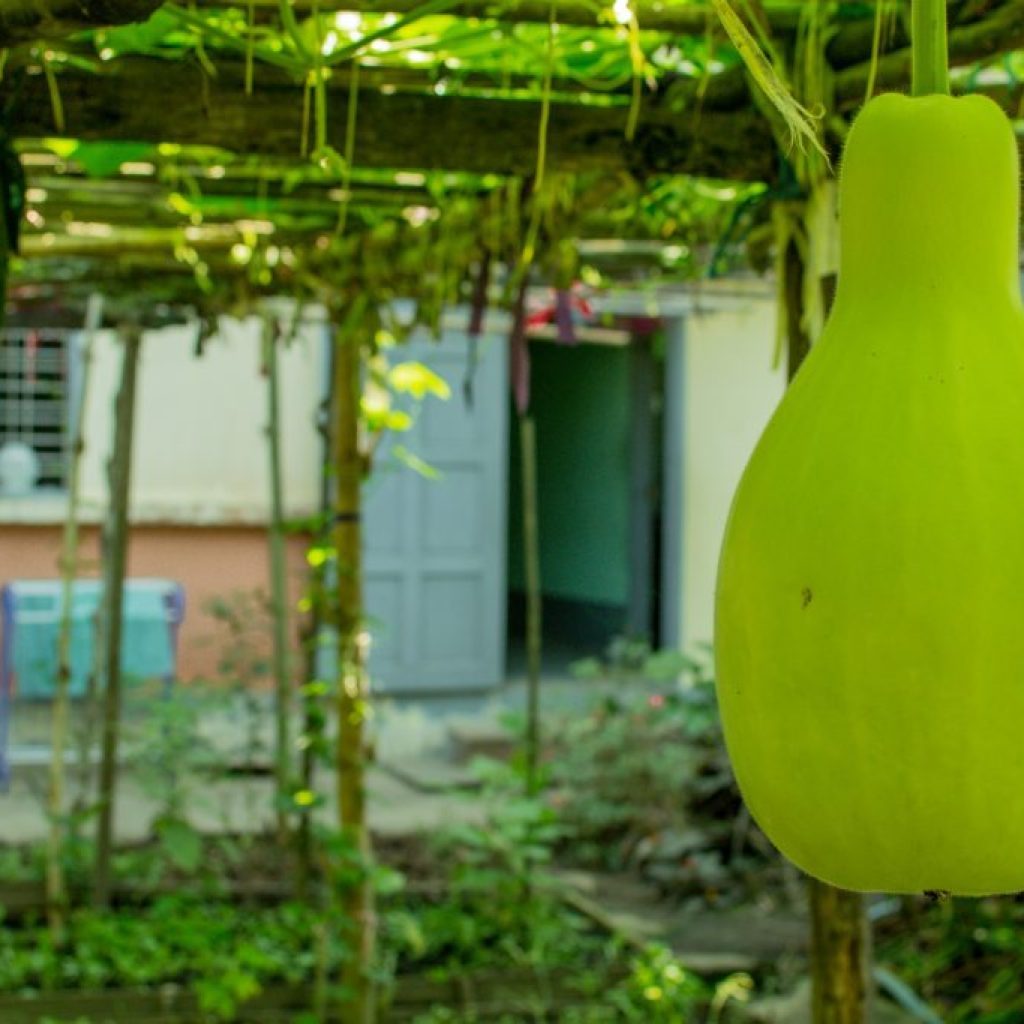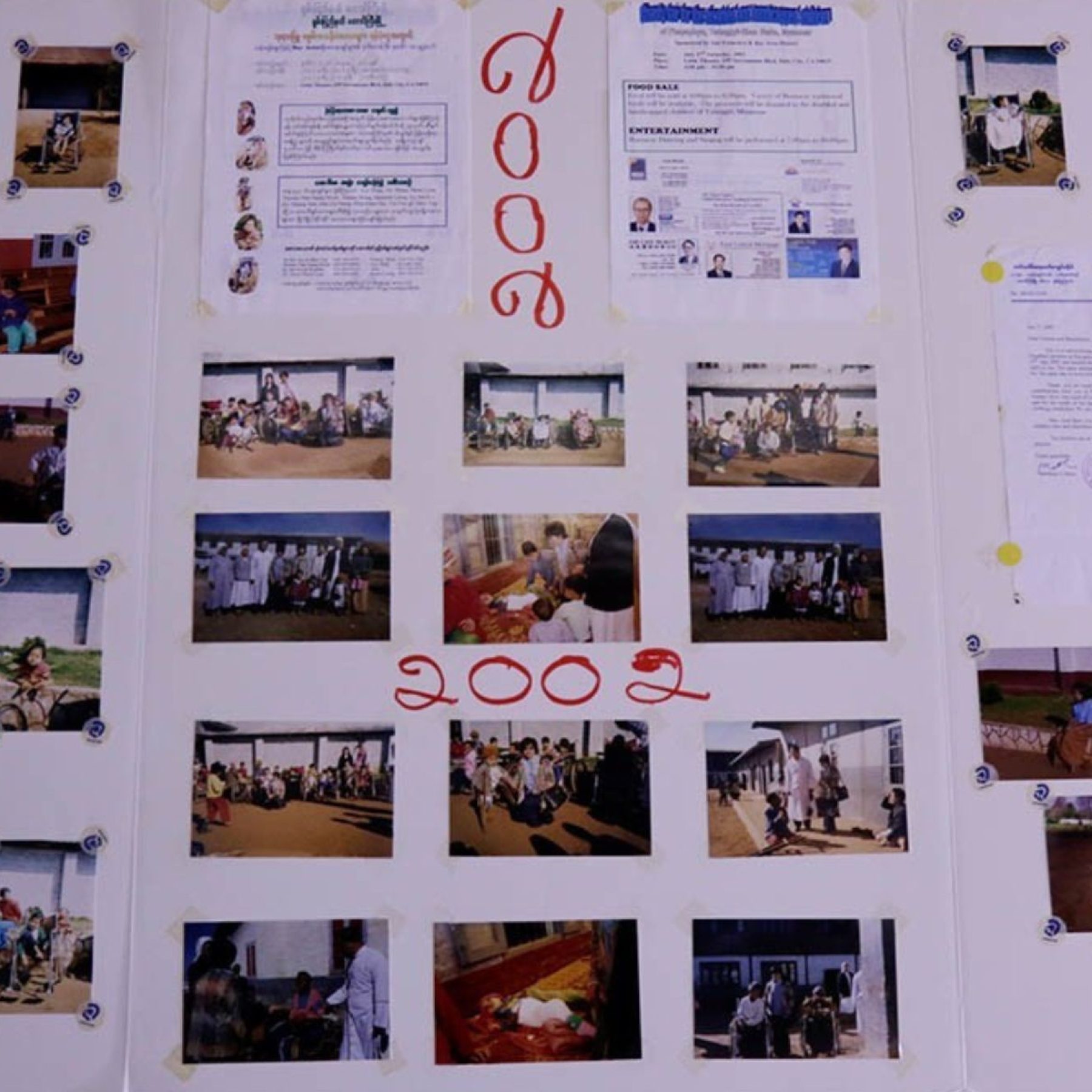
Goal #11: Sustainable Cities And Communities
Impacting lives through Eco-friendly cultivation practices
“Through sustainable gardening practices, orphanages cultivate not only nourishing gardens but also hope, resilience, and a profound connection to nature, empowering orphaned children with the knowledge and skills to sustainably feed themselves, heal the Earth, and create a greener future.”
Jean Luc Kouyoumji
Board Member, Mary K. Yap Foundation
UN’s Goal 11, Sustainable Cities and Communities, addresses the urgent need to create inclusive, safe, resilient, and sustainable urban environments. At its core, this goal aims to ensure that cities and human settlements are designed to be sustainable, fostering community cohesion, economic growth, and environmental protection. One crucial aspect of achieving this goal is promoting sustainable gardening practices to encourage urban agriculture and green gardens, particularly in orphanages where food security and environmental sustainability intersect.
Urban agriculture significantly advances Goal 11 by promoting food security, reducing food miles, enhancing biodiversity, and mitigating climate change impacts. By implementing sustainable gardening practices in urban areas, such as vertical gardening, rooftop gardens, and community gardens, cities can increase access to fresh produce, improve air quality, and create green spaces that benefit humans and wildlife. These practices also contribute to reducing greenhouse gas emissions by promoting local food production and reducing the need for long-distance transportation of food.
In the context of orphanages and similar institutions, adopting sustainable gardening practices addresses food security concerns and provides a holistic approach to child welfare and development. Green gardens within orphanage premises can serve as learning spaces where children can engage in hands-on activities and learn about agriculture, nutrition, and environmental stewardship. Moreover, involving orphanage residents in gardening promotes a sense of ownership, self-sufficiency, and connection to nature, contributing to their overall well-being and sense of belonging.
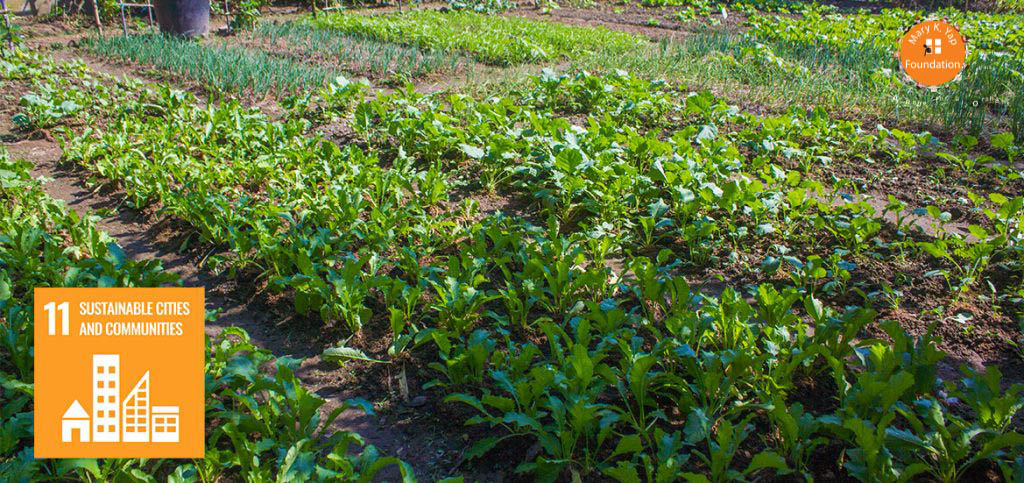
The Foundation’s sustainable gardening initiative allows orphanages to produce nutritious food, reducing dependency on external sources. By growing fruits, vegetables, and herbs on-site, orphanages can ensure a steady supply of fresh, organic produce. This cultivation practice improves the nutritional quality of meals and promotes a healthy lifestyle for the children under their care. Moreover, sustainable Gardening minimizes the environmental impact by avoiding harmful pesticides and synthetic fertilizers, thus preserving soil health and promoting biodiversity.
Below are some significant advantages that have surfaced through our committed endeavors and the amplified positive effects of our Sustainable Gardening initiatives on these orphanages, yielding impactful benefits beyond the gains from the gardens themselves.
To promote sustainable gardening practices in orphanages, partnerships between government agencies, non-governmental organizations (ngos), educational institutions, and local communities are crucial. These partnerships can provide technical expertise, funding support, and capacity building to effectively establish and maintain green gardens. Training programs on organic farming, water conservation, composting, and permaculture can empower orphanage staff and children with the knowledge and skills needed to cultivate sustainable food systems within their premises. Here are some vital, impactful benefits that have emerged as a result of our dedicated efforts and the positive effects that amplify our sustainable gardening practices on these orphanages:
Food Security: Sustainable Gardening allows orphanages to produce fresh and nutritious food. By growing fruits, vegetables, and herbs, orphanages can supplement their food supply, ensuring a consistent source of healthy and organic produce. This promotes food security, reduces dependence on external sources, and improves the overall nutritional quality of meals.
Cost Savings: Growing food on-site through sustainable Gardening can lead to significant cost savings for orphanages. By reducing the need to purchase produce, orphanages can allocate their resources more efficiently, allowing them to invest in other essential areas such as education, healthcare, and infrastructure.
Environmental Stewardship: Sustainable gardening practices prioritize ecological sustainability. By adopting organic and regenerative farming methods, orphanages can reduce their environmental footprint. These practices promote soil health, conserve water, minimize chemical pesticide and fertilizer use, and support biodiversity. Orphanages can become examples of ecological stewardship and teach children the importance of caring for the planet.
- Educational Opportunities: Sustainable Gardening provides a hands-on and engaging educational experience for orphaned children. They can learn about plant life cycles, ecological relationships, and sustainable farming practices. Gardening fosters curiosity, scientific inquiry, and a deeper understanding of the natural world. Children can gain practical knowledge about gardening techniques, composting, and permaculture, equipping them with valuable life skills.
- Therapeutic Benefits: Gardening benefits orphaned children by offering them a nurturing and healing environment. Working in the garden can reduce stress, anxiety, and depression while promoting relaxation and a sense of accomplishment. Gardening also encourages physical activity and outdoor engagement, supporting overall well-being and mental health.












- Sense of Responsibility and Ownership: Involving orphaned children in sustainable Gardening fosters a sense of responsibility and ownership. They can take pride in caring for plants, watching them grow, and contributing to the garden’s success. This cultivates a sense of empowerment, self-esteem, and the understanding that their actions can positively impact their environment.
- Community Building: Sustainable Gardening can bring orphaned children together, promoting teamwork, collaboration, and community. Children can work cooperatively, share responsibilities, and learn the value of collective effort. Gardening can also provide intergenerational interactions involving volunteers or community members, further strengthening bonds and social connections.
- Beautification and Aesthetics: Gardens enhance the visual appeal of orphanage grounds, creating a welcoming and aesthetically pleasing environment. Beautiful gardens can uplift spirits, provide a sense of tranquility, and improve the overall ambiance of the orphanage. They can also serve as spaces for relaxation, recreation, and outdoor activities.
- Sustainable Skills and Entrepreneurship: Sustainable Gardening can teach orphaned children valuable skills that can be applied beyond the orphanage setting. They can learn about sustainable agriculture, organic farming, marketing, and entrepreneurship. These skills can empower them to pursue careers in the agricultural sector, start their gardening initiatives, or contribute to sustainable development in their communities.
- Connection with Nature: Sustainable Gardening reconnects orphaned children with nature, allowing them to appreciate its beauty, resilience, and interconnectedness. It offers an opportunity to develop a sense of wonder, curiosity, and environmental consciousness. Connecting with nature has promoted well-being, environmental awareness, and a lifelong connection with the natural world.
Embracing sustainable gardening practices enables orphanages to harness the power of nature, promote self-sufficiency, and equip orphaned children with essential life skills. By nurturing their food sources and being resourceful, our Foundation is committed to introducing our gardening concepts so that orphanages can create a sustainable and nurturing environment that benefits the children and the planet.
The United Nations (UN) does not have a specific plan that mandates sustainable gardening practices for orphanages; however, it supports and promotes sustainable development goals and initiatives encompassing various aspects of agriculture, food security, and environmental sustainability.
The UN recognizes the importance of sustainable agriculture and the need to ensure access to nutritious food for all, including vulnerable populations such as orphanages. The UN’s Sustainable Development Goals (SDGs), particularly Goal 2: Zero Hunger, emphasize the importance of promoting sustainable agriculture, ensuring food security, and supporting small-scale farmers. These goals aim to eradicate Hunger and achieve sustainable food systems worldwide.
Furthermore, integrating sustainable gardening initiatives into broader urban planning strategies aligns with the principles of sustainable development outlined in Goal 11. By incorporating green spaces and urban agriculture developments into vulnerable communities, orphanages can create healthier, more resilient, and environmentally sustainable living, contributing significantly to the achievement of the UN’s Sustainable Development Goals, including Goal 11 – Sustainable Cities and Communities.
The Mary K. Yap Foundation’s sustainable development agenda also aligns with the UN’s broader goals set by its Food and Agriculture Organization (FAO) for promoting sustainable food production and supporting initiatives that can supplement food supplies, community gardening, urban farming, and food security for vulnerable populations in a sustainable and environmentally friendly manner. These efforts contribute to building resilient food systems and improving access to nutritious food for all, including orphanages.
